Research buffs rejoice! At the School of Science and Technology (SST), a through-train programme to Ngee Ann Polytechnic (NP) is offered to selected students at the Secondary 3 and 4 levels.
This allows them to bypass the O Levels and enter directly into one of the 21 STEM-related courses offered by NP. It is the first-of-its-kind STEM-related programme that provides students with direct entry to a polytechnic.
Known as the SST-NP Integrated Diploma Programme (IDP), students take on a wide range of STEM-related learning experiences which culminate in a capstone project – where they work, in groups, with industry mentors to get real-world industry experience.
Since its inception, there has consistently been a healthy interest in the IDP and only about 50 students per cohort are shortlisted.
Schoolbag speaks with three graduating IDP students to find out more about their experience.
She helped farmers detect diseases in shrimp
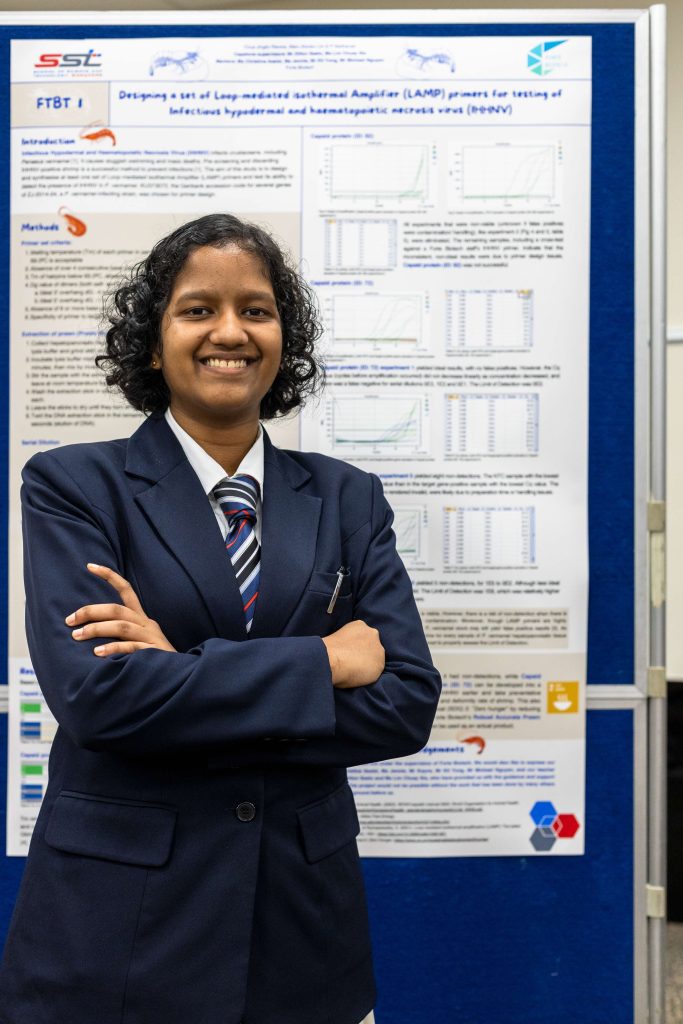
P Sadhanah had always been interested in biology, and wants to pursue a career in the biomedical industry – specifically, agricultural technology. Given Singapore’s resource constraints, she is passionate about growing food supplies more sustainably, and in preventing disease in livestock.
For her IDP capstone project, she and her team worked with local startup Forte Biotech, to design a set of primers that can detect Infectious Hypodermal and Hepatopancreatic Necrosis Virus in farmed shrimp. This allows shrimp farmers to detect the disease earlier.
Sadhanah’s passion for STEM was fuelled by the IDP experience at SST. In Secondary 3, she took part in a Structured Work and Research Attachment Programme with the National Cancer Centre, where she was able to learn from biomedical researchers.
In Secondary 4, she went on a study exchange trip to the UK to visit STEM institutions like the James Dyson STEAM Building at Gresham’s School and the archaeology department at University College London. She says, “It’s really useful having these opportunities that expose you to different fields in STEM. It gives you a better idea of the things you could pursue in future.” Sadhanah will be pursuing her diploma in Biomedical Science at NP next year.
He researched the commercial use of carbon dioxide
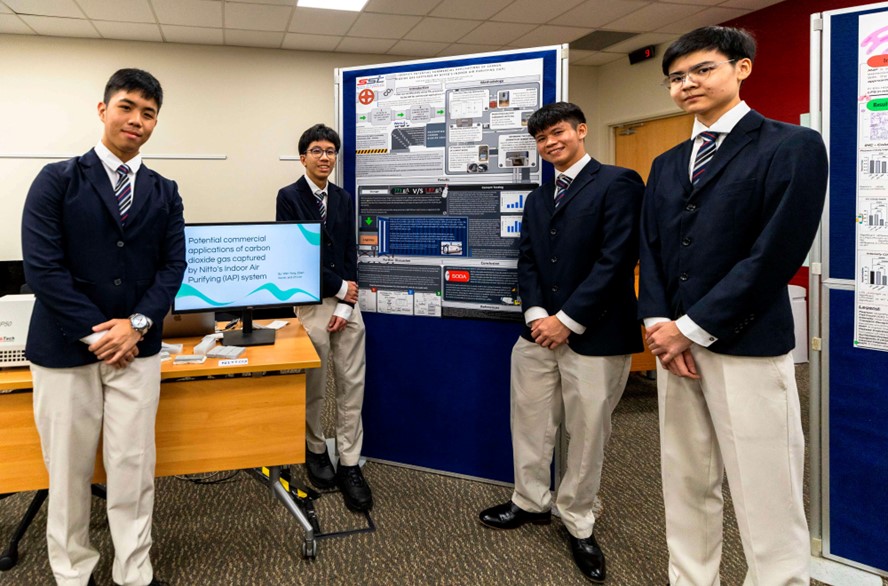
For his capstone project, Eben Lim worked with a manufacturing company to research the use of carbon dioxide to improve the physical qualities of cement.
His interest in tinkering around with objects had stemmed from his primary school days, when he was part of his school’s robotics club.
At SST, he was given the opportunity to take part in the ChangeMakers Programme at lower secondary, where he learnt how to programme and work with electrical circuits. Eben has also made a stock predictor using AI and Python, and a camera filter using AI, as part of his IDP coursework.
He believes that not having to sit for the O-Level examinations freed up time for him to undertake these opportunities.
Choosing the IDP route resonated with him, as he knew since primary school that he wanted to go down the polytechnic route, which he had heard was less about tests and more about projects. The IDP offered by SST not only allows him direct entry into a polytechnic, but also prepares him for his career goals.
“With the capstone project, it’s exactly like working with a team of colleagues in the workplace. I enjoy it because it helps to grow my creativity and ability to work in a team,” says Eben, who will be pursuing his diploma in Cybersecurity at NP.
She explored uses for toxic chemicals from sea sponges
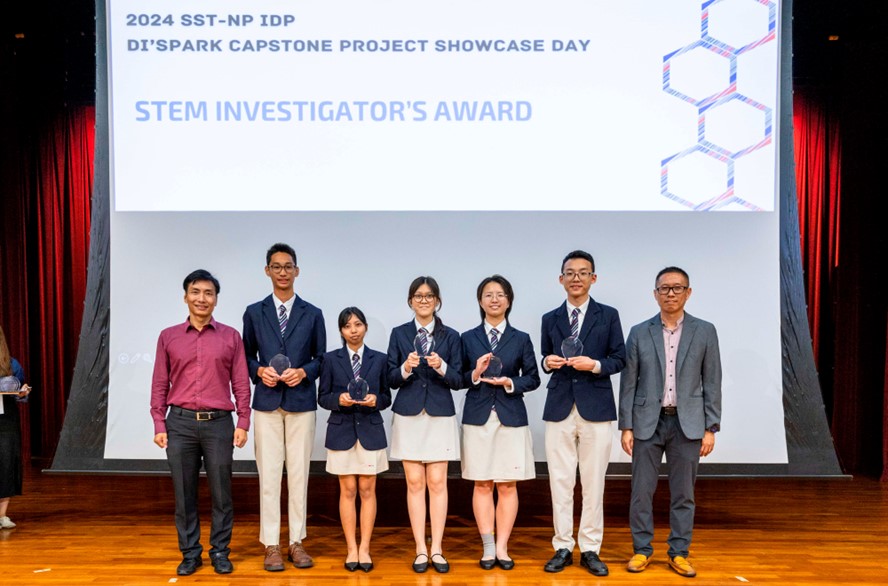
Fera Qairissa Binte Amin’s capstone project involved working with the National Institute of Education (NIE) to carry out research on whether toxic chemical compounds produced by marine sea sponges could be useful to the biomedical industry.
She had taken Biotechnology as her applied subject in Secondary 3, where she was able to independently plan her own research experiments, and that fuelled her passion in laboratory research. Like Sadhanah, Fera will be pursuing Biomedical Science at NP next year.
As part of her capstone project, Fera frequently went to Pulau Hantu to collect samples from sea sponges, and this fostered a deeper appreciation for marine diversity. She credits the IDP for providing her with numerous experiences that are tailored to her interests and better equip her for a career in the biomedical field.
Through the IDP, she also went on a two-week internship at the Biomedical Institute of Singapore where she interacted with other scientists.
“When I tell other people that I did all this at 16 years old, it’s really mind-blowing to them,” she says.
“IDP is hard work but useful for a STEM career”
Mr John Tan, Deputy Dean of the IDP at SST, says the beauty of the IDP capstone project is its focus on real-world projects carried out with industry, research and community partners.
“When students work on these authentic projects, they get to see the challenges involved and can apply what they’ve learnt to find a solution,” he says. “With the acquired STEM knowledge and exposure gained through the IDP, our industry partners extend our students’ learning by mentoring and sharing their experiences with them.”
On the IDP application process, Mr Tan points out that students need to be clear that the polytechnic pathway, in particular NP, is what they want. Apart from demonstrating disposition in maths and science, the school also looks at the students’ attitude and aptitude towards applied learning during STEM programmes as part of the selection criteria.
“Not taking the O Levels may sound easier at first, but it really isn’t,” shares Sadhanah. “The IDP is a lot of work. There’s a lot of reading, experimentation and troubleshooting things. If you value hands-on learning experiences, then the programme is for you. You’ll still have to study, take exams, and work hard to get into your choice course. But it’s really useful if you want a career in STEM – you would really appreciate having all these opportunities provided by the school.”



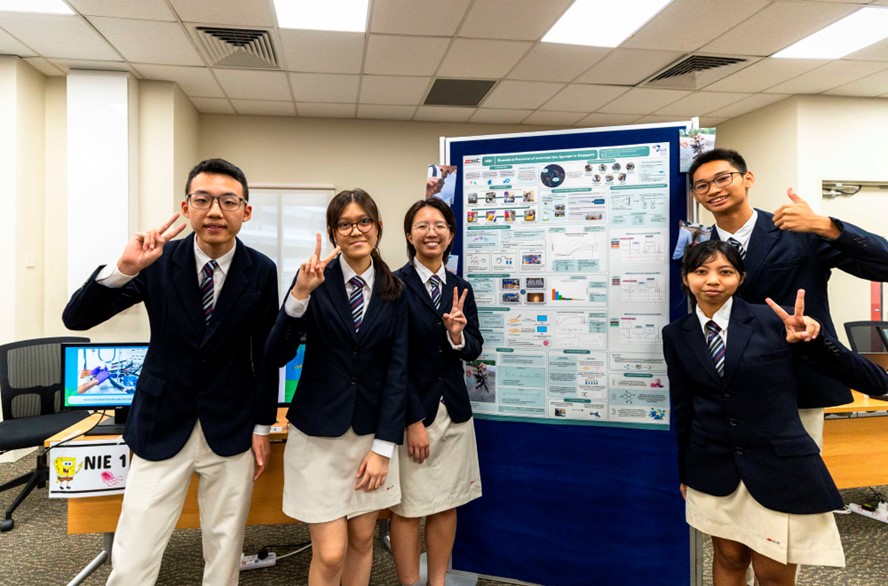
.jpg)
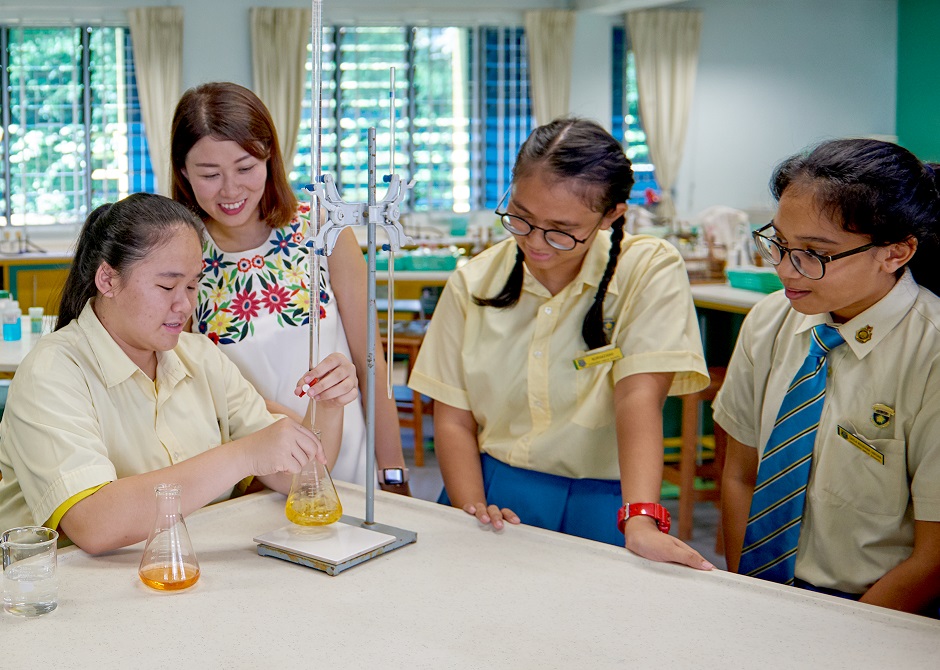
-(1).jpg)